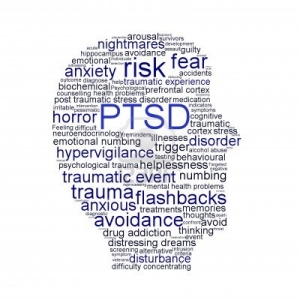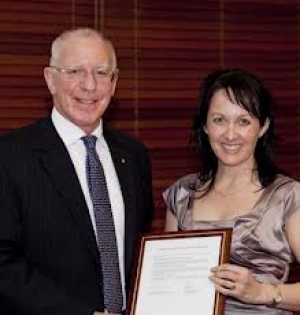Administrator
The health and wellbeing of female Vietnam and Contemporary Veterans
This report presents findings from a three year in depth study into the health and wellbeing of Australian female veterans.
Empirical research was collected through face-to-face interviews with 60 female veterans who had deployed from the Vietnam era onwards, including Vietnam, Rwanda, the Gulf War, Cambodia, Timor Leste, Bougainville, Solomon Islands, Iraq and Afghanistan. The sample were a heterogeneous group comprising women from Army, Airforce and Navy, soldier and officer categories, and a range of ages, ranks and lengths of service. A third of women in the study had deployed more than once, some up to four times. Women represented a range of occupational categories, including health, administration, communications, transport, logistics, signals, engineering, and intelligence.
First World War - 15 legacies still with us today Part 2
Douglas Haig, the much-criticised commander of the British forces in France, wrote of the conflict's end with profound lucidity: "I believe that the value of the horse and the opportunity for the horse in the future are likely to be as great as ever. Aeroplanes and tanks are only accessories to the men and the horse, and I feel sure that as time goes on you will find just as much use for the horse – the well-bred horse – as you have ever done in the past." Like so many other times, he could not be more mistaken.
Guillermo Altares, El Paîs
First world war - 15 legacies still with us today PART1
The great war may have been destructive, but it also generated so many startling developments – in medicine, warfare, geopolitics and social relations - that its influence still resonates today. Here are 15 lasting legacies of the war.
Young People's Views on Electronic Mental Health Assessment: Prefer to Type than Talk?
For mental health professionals to provide personalized early interventions, young people need to disclose sensitive information to a clinician they are unli-kely to have yet formed a relationship with. We conducted in-depth qualitative interviews with 129 young people aged 12–25 years from several sites across Australia to gauge views on whether young people thought that an electronic psychosocial assessment tool could help them initially disclose personal information.
Coping With Diarrhea and Digestive Distress
Fried Foods: Diarrhea Trigger
Dealing With Diarrhea
Diarrhea can cause dehydration, so be sure to drink plenty of fluids. To settle digestion, eat bland -- not high fat or spicy -- foods at first. However, return to a normal diet as soon as symptoms ease -- within 24 to 48 hours -- to make sure you are getting all the nutrients you need to recover.
Post Traumatic Stress Disorder - What Happens in the Brain.
This is a brief look at the processes that lead to post traumatic stress disorder (PTSD) and what happens in the brain. We take a light handed approach to the insides of the brain, not to demean but to promote understanding. PTSD is a disabling misery that is best understood through information.
Taken from Beyond Blue - What is PTSD?
Taken from Beyond Blue
What is PTSD?
Post-traumatic stress disorder (PTSD) is a particular set of reactions that can develop in people who have been through a traumatic event. That is, they have experienced or witnessed an event which threatened their life or safety, or that of others around them, and led to feelings of intense fear, helplessness or horror. This can be a car or other serious accident, physical or sexual assault, war or torture, or disasters such as bushfires or floods.
High Blood Pressure (Hypertension) Pictures Slideshow: Symptoms, Causes and Treatments
American Research.
What Is Hypertension?
High blood pressure, or hypertension, is a very common condition in older adults. The blood pressure is the physical force exerted by the blood as it pushes against the walls of the arteries. An elevated blood pressure means that the heart must work harder to pump blood. High blood pressure can also damage the walls of the arteries. With time, hypertension increases the risk of heart disease, kidney disease, and stroke.
A Visual Guide to Generalized Anxiety Disorder
Generalized Anxiety Disorder
It's natural to worry during stressful times. But some people feel tense and anxious day after day, even when there is little to worry about. When this lasts for six months or longer, it may be generalized anxiety disorder or GAD. This illness affects nearly seven million Americans. Unfortunately, many people don't know they have it. So they can miss out on treatments that lead to a better, happier life.
Christmas Message from Julie Blackburn Defence Families of Australia
With Christmas almost upon us, the festive season will see many of us enjoying time catching up with family and friends. Keep in mind that not all in the Defence Community will be enjoying this period. For some, this becomes a stressful and lonely time of the year. Many Defence families are relocating to a new area for the next posting; some families will have someone close to them away, some may be dealing with loss or caring for someone who is in poor health, or they may be unwell themselves.
Defence families are made up of ordinary Australians. It is important that we keep an eye on our Defence community, understand its challenges, and take care of it to ensure we are nurturing a valuable and necessary part of our society. Whilst we are beginning to understand the impact of defence life on military members, how this effects the family remains an area needing to be explored.
The work being done by researchers connected at AFOM, to understand defence families, to ensure family health and wellbeing is maintained, and suitable programs are in place to provide supportive tools to them, is very valuable in ensuring the health of our current and future generations. It is my wish that the AFOM foundation receives the support it needs to continue its work in this area.
May you find peace and comfort in those around you this Christmas, surrounded by those who treat you well, and may the magic of the season guide you through whatever challenge lies ahead.
Best wishes to you and your families for 2014.
Julie Blackburn
DFA National Convenor
‘Be the change you want to see in the world’ -Gandhi








